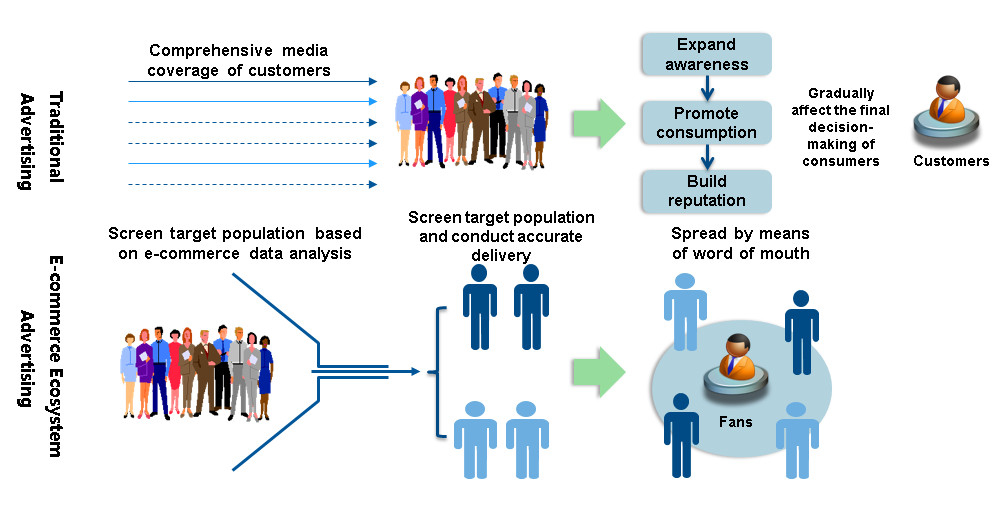In the recent two years, IDC visited more than 30 traditional enterprises and industry clusters proceeding from the emerging mode of Internet such as e-commerce, and obtained a deep insight into the impact of Internet on traditional industry transformation and upgrade. Yolanda Zhang, Research Manager of IDC China believes that, “in the Two Sessions (the National Peoples’ Congress and Chinese People’s Political Consultative Conference), Internet Plus is among the hottest vocabularies. The State for the first time encourages and supports the development of Internet as a strategic emerging industry. It can be foreseen that Internet will play a significant role in promoting industry upgrade and leading the new economic development of the whole country.”
In the upgrading process of traditional industries, advertising and media is the first industry impacted by the wave of Internet. In recent years, with the value of Internet media increasingly accepted by the market, the proportion of spending on Internet advertising has expanded steadily.
IDC analysts believe that, the impact of “Internet Plus” on the transformation and upgrading of media advertising is mainly reflected in the following four aspects:
1. Expand media resources and increase media forms: The development of Internet applications, for instance in e-commerce, has expanded the channel resources of traditional media communications. New media platforms are formed such as Web portals, e-commerce platforms, APP clients, and social media platforms, which are able to provide advertisements in the form of page ads, implanted ads, and ad search alliance.
2. Deliver ads more precisely: The traditional advertising models seek to improve brand awareness by delivering ads on mass media platforms such as China Central Television (CCTV) and leveraging the maximum range of “bombardment”, so as to foster consumer trust and boost sales revenue growth. Advertising models based on E-commerce ecosystem tend to first filter out potential target customers through accurate analysis of user data, and then deliver ads to the targeted customers. Compared to traditional advertising models, they are more accurate and cost effective.
3. Make delivery more direct and traceable: Another great significance for the Internet and e-commerce to transform the advertising industry stems from the direct effect on sales and full traceability of ad delivery. As e-commerce platform is the last interface for the consumer’s purchase, platform marketing and advertising will be converted more directly into actual sales leads. Also, because the whole process is done on the network platform, monitoring of ad delivery can be fully traceable, and show the effect of ad delivery on shop page views and the promotion of actual sales in detail.
4. Create a new advertising experience: Network-based and digital e-commerce platform may have more innovations in the form of media advertising, thereby giving consumers more advertising experience. The “Dream Salon” social game launched by P&G on Sina microblogging in 2012, for example, has nearly 100,000 active users a day at the end of August 2012, and consumers can have more than a million times of brand contact with P&G personal care products. These new advertising forms and experience will enable the advertising media industry to release more energy.
To summarize, after the transformation by Internet, the advertising media industry has enriched the variety of marketing tools to meet the diversified marketing needs of enterprises. For example, it helps manufacturers achieve high sales in the short term by hard advertisement, search recommendation or other means. It can also more accurately find target customers for brand publicity and accurate delivery via social media and other user data analysis. Take the growth of Taobao brand as an example, e-commerce can significantly shorten the time for the brand establishment, and also cultivate brand fans, so it has higher activity and trust in the brand. In other words, customers who know one e-commerce brand usually have experience in consuming such a brand, but if you understand a brand through the traditional way, it is more often that you know but never buy products of such a brand.












